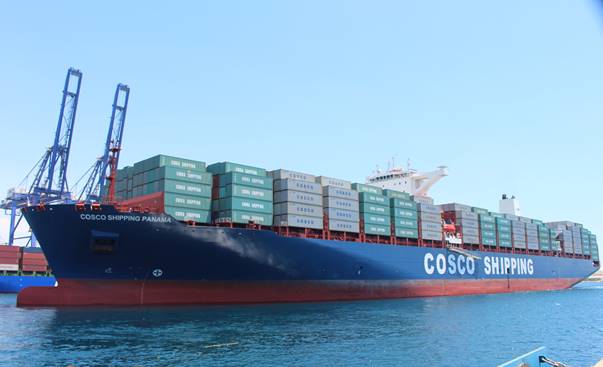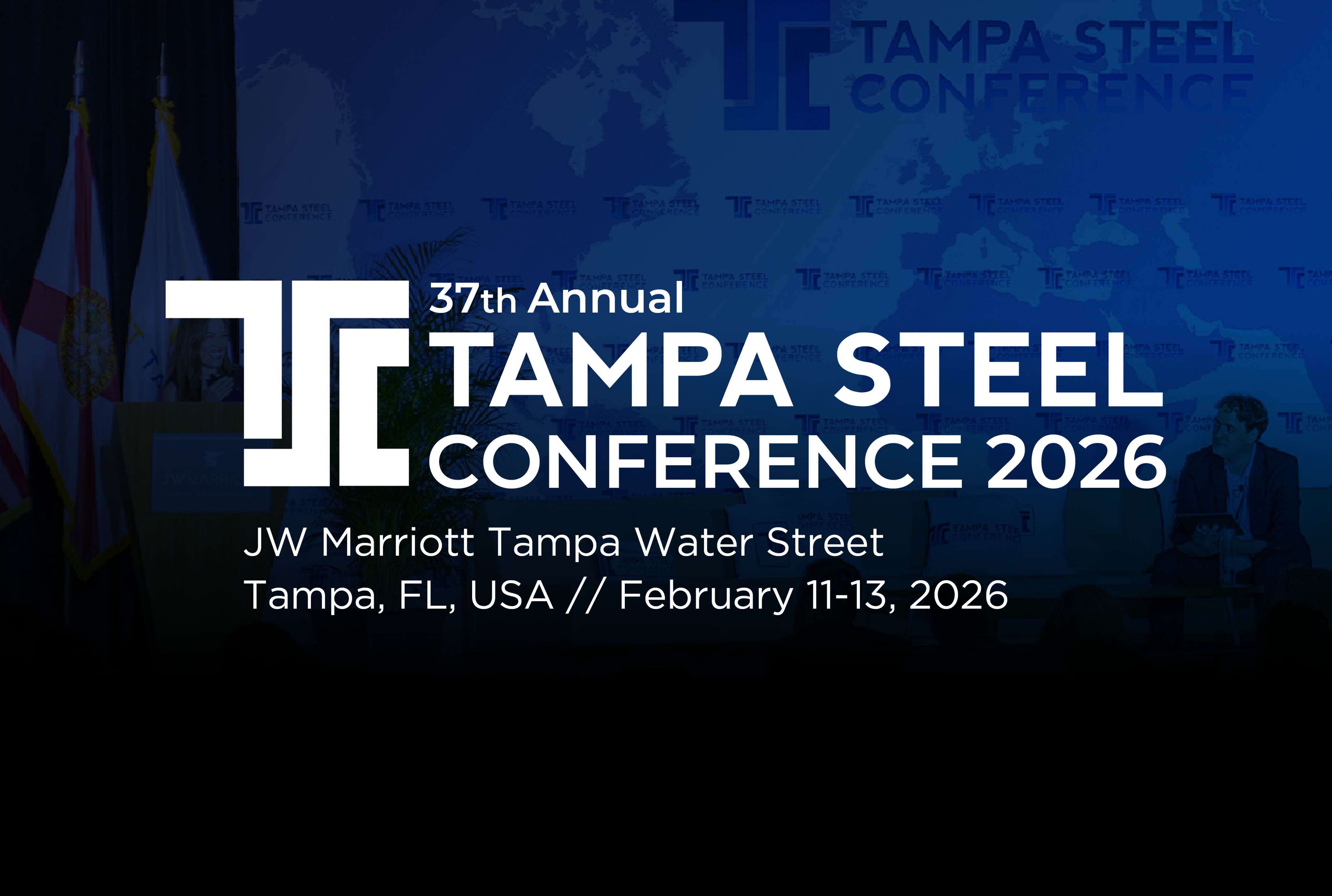Community Events

April 12, 2024
SMU Community Chat: Posner talks state of global logistics
Written by Laura Miller
While shipping and supply chains have always been subject to wars, pirates, privateers, geopolitical issues, and natural disasters, it seems that “it’s been busier lately when it comes to dealing with significant supply chain disruptions,” according to logistics expert Anton Posner.

Posner, CEO of Mercury Resources, joined SMU managing editor Michael Cowden for another Community Chat on Wednesday, April 10. He shared his expertise on the latest happenings in the global logistics markets.
Mercury Resources, based in Port Washington, N.Y., is a global supply chain management company focusing on commodities, including steel and other metals and the raw materials that go into making them, as well as coal, cement, fertilizers, and more.
As such, Posner provided the SMU community with great insights into the state of shipping and global supply chains.
Baltimore bridge collapse
Discussing the March 26 collapse of the Francis Scott Key Bridge in Baltimore, Anton said it’s a “temporary big story.” The Port of Baltimore is a major container port and an important port for imported ferroalloys and exported coal.
“We’re seeing quite a signficnat amount of scrambling container ships, men changing their schedules to drop containers or route export containers via Newark, Philadelphia, Norfolk, and other ports on the East Coast,” Posner explained.
There are a handful of ships carrying coal for export that have been trapped in Baltimore due to the bridge collapse.
“The Baltimore coal export market is for the most part frozen in time, waiting for the reopening,” Posner said.
He said the port and Army Corps of Engineers expect to have a 35-foot deep channel open to limited traffic by the end of April.
As for reconstruction of the bridge, that’s going to take years to do, Posner said.
“I think the more lasting impact is going to be on the truck freight market in the Baltimore area. It’s knocked out a major artery for truck traffic,” he noted.
Suez Canal
Posner said the greatest impact the situations in the Panama and Suez canals have had has been on global freight rates.
In addition to longer routes and higher freight rates, insurance costs have increased as well, he noted.
The situation in the Suez Canal is “unprecedented in terms of the modern world,” Posner said, as commercial ships risk entering a dangerous situation. We’d have to go back to the 1700s to see such a threat to commercial shipping, he said.
“Warheads hitting commercial ships is not something I dreamed I’d be talking about,” he said.
The impact on freight rates has been significant. Although shipments going to and from the eastern Mediterranean and ports in the Persian Gulf have been more affected, higher rates are now baked into freight rates globally, he said.
Panama Canal
The situation in the Panama Canal has been easing, Posner said. Daily traffic has increased to about 27 ships, up from about 20 in the past few months.
Posner said the cost to put a ship into the canal’s queue has been “extremely high.” Those costs include fees on top of regular tolls, additional surcharges, and bidding by ship owners to move up the list. However, he noted, those costs have begun to drop.
Posner provided an example of recent freight numbers Mercury Resources has seen for metals moving out of Southeast Asia: in December, rates were ~$2,000 for a container. By February, rates had spiked to $6,000. Although they’ve started easing, they’re now ~$5,000, he said.
The canal delays have now been baked into break bulk, he said. “Ships have just been routinely going around and not dealing with paying extra going through the canal,” he noted.
Posner sounds an alarm
Mercury Resources is closely watching the climate situation.
While he would categorize barge traffic in the US as “normal to quiet at this point,” Posner warned of a situation his company is monitoring.
A drought in the Midwest has greatly reduced the snowpack in the north, meaning less ice is now melting and flowing into the river systems. Low water levels could affect barge traffic, he cautioned.
So, are we going to see more of this type of thing? “We’re going to be dealing with far more drastic climate issue swings in different regions, from the inland river system to the canals, to storms. And what’s expected to be a very exciting Atlantic hurricane season this year, too,” he said.
What keeps him up at night
When asked what keeps him up at night, Posner didn’t hesitate: “It’s what potentially could happen if cooler heads don’t prevail in Southeast Asia.”
China has territorial ambitions in the South China Sea, and its Coast Guard is firing water cannons at Filipino supply boats. Vessels are “bumping into each other and playing quite a nasty game of chicken,” he said.
He said they’re starting to see Taiwanese manufacturers put contingency plans in place to continue business should a major disruption occur there.
If something more significant happens in the region, it could affect steel exports, raw materials, energy, eggs, pretty much everything, Posner said.
What’s to come?
“We’re seeing far more challenges to global supply chains, more than we’ve ever seen. I’ve been playing in this game for just over 30 years, and it seems like the curveballs are coming faster and more furious lately. It’s keeping us on our toes. It’s constant evolution,” Posner said.
“I anticipate this pace continuing. If I had to put my money at the right spot on the roulette table, I’m putting my chips on crazy,” he added.
SMU subscribers can access a replay of the Community Chat with Posner on our website.
We have three upcoming Community Chats that you’ll surely want to join us for:
- April 17 with Ken Simonson, chief economist of the Associated General Contractors (AGC) of America
- May 1 with David Stickler, CEO of Hybar
- May 15 with Ryan McKinley, senior analyst at CRU
Visit the SMU Community Chat webpage for more information and to register.






